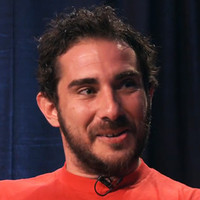Approximate Directions to a Burial
A son chronicles his father’s death:
My father's mortician was a careless barber. Stepping up to the open casket, I realized too much had been taken off the beard. The sides were trimmed tidy, the bottom cut flat across. It was a disconcerting sight, because in his last years, especially, my father had worn his beard wild, equal parts loony chemist and liquor store Santa. The mortician ought to have known this, I thought, because he knew the man in life. My father — himself the grandson of a funeral home director — would drop by Davey-Linklater in Kincardine, Ontario, now and then for a friendly chat. How's business? Steady as she goes? Death was his favourite joke.













